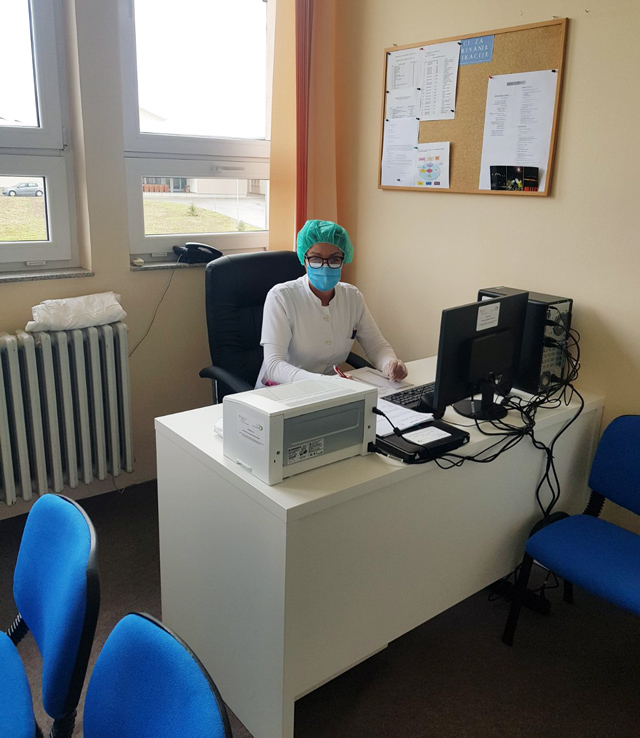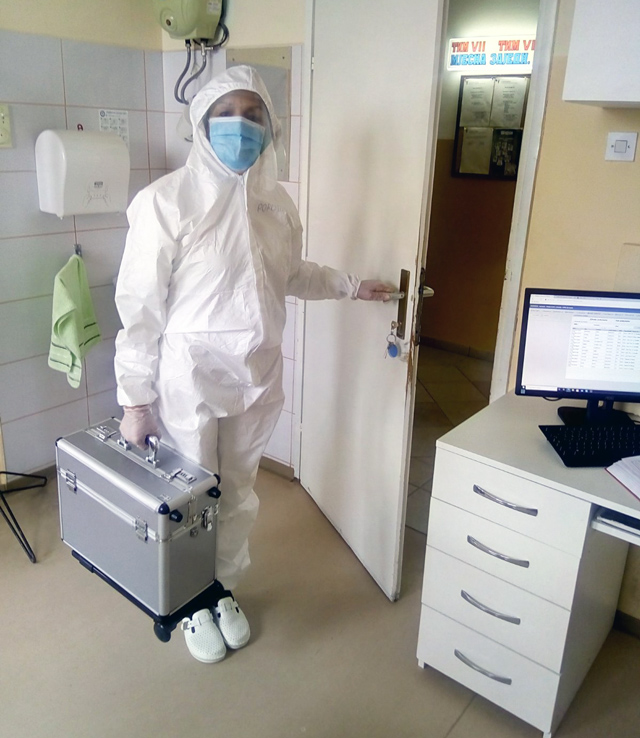Milojka Loncar is a nurse at the Primary Health Care Center Derventa and one of the trainees at the training organized by ProSes. She believes that resourcefulness and promptness are traits of particular importance for community nurses working in the field. Despite the pandemic, she continued providing care to her patients and making home visits, while applying necessary precautions and using personal protective equipment. She uses every opportunity to refresh her knowledge and learn something new.
Milojka decided on her profession at an early age, while still in primary school. She is aware of the great responsibility that comes along with this profession, but also of the humanity and great love for people that it requires. In her opinion healthcare workers should be resourceful, especially the nurses making home visits, as sometimes they are required to react promptly and independently.
Like many others, Milojka at first perceived COVID-19 as something happening in a faraway China but never in our own country. The further development of the situation and the first COVID-19 cases in our country and soon after in Derventa, brought her around to understand the great seriousness of the pandemic.
Milojka believes that the institutions in charge reacted quickly and adequately introducing preventive measures. The work at the PHCC Derventa has been reorganized and new guidelines have been introduced. A COVID clinic was opened and is still operational. Milojka is very grateful to those working there, because “it is not easy to endure”. Use of personal protective equipment has become mandatory for all healthcare workers. “I am grateful to the Fami Foundation for donating the personal protective equipment that was most needed at the time. Without it, we would not be able to provide the necessary services to patients and protect ourselves and others to the same extent”, Milojka adds.
Milojka explains that, despite the pandemic, home visits continued: “Our patients are still here and they need help. We are aware that these are mostly very vulnerable patient groups, such as persons with diabetes or cancer. That is why we did our best to contact and inform them by phone about general preventive measures. To protect them as much as possible, we have provided the possibility to call and seek necessary prescriptions and referrals that we then delivered to them, so they would not have to come to the health facility. We do counseling every day, by phone and during home visits. When in home visits, we apply all precautions, including wearing required personal protective equipment".
Milojka underlines that all this was made possible owing to the well-organized work and cooperative colleagues and explains: “We must be well informed, protective and supportive of each other. Both as a citizen and as a healthcare worker, I must respect all preventive measures. This is the only way I can protect the health of my patients, colleagues and family, but above all, my own health so that I can be at disposal to patients”.
“We, the healthcare workers, have accepted the situation as it is. We have fought and will continue to fight. We are doing our best to help patients overcome adversities brought on by the pandemic", says Milojka. She adds that patients have also accustomed to the new circumstances, so when they call us, they say: “You know that I can not go to the PHCC because I'm over 65 years. I need the following ...”.
Milojka points out that she uses every opportunity to participate in trainings organized in the PHCC where she works, including the one organized by ProSes. “Regular trainings and continuous professional development are very important, in my view. Despite many years of work experience, it is necessary to refresh the knowledge and remind ourselves of certain guidelines, but also to learn some new, practical skills”.

